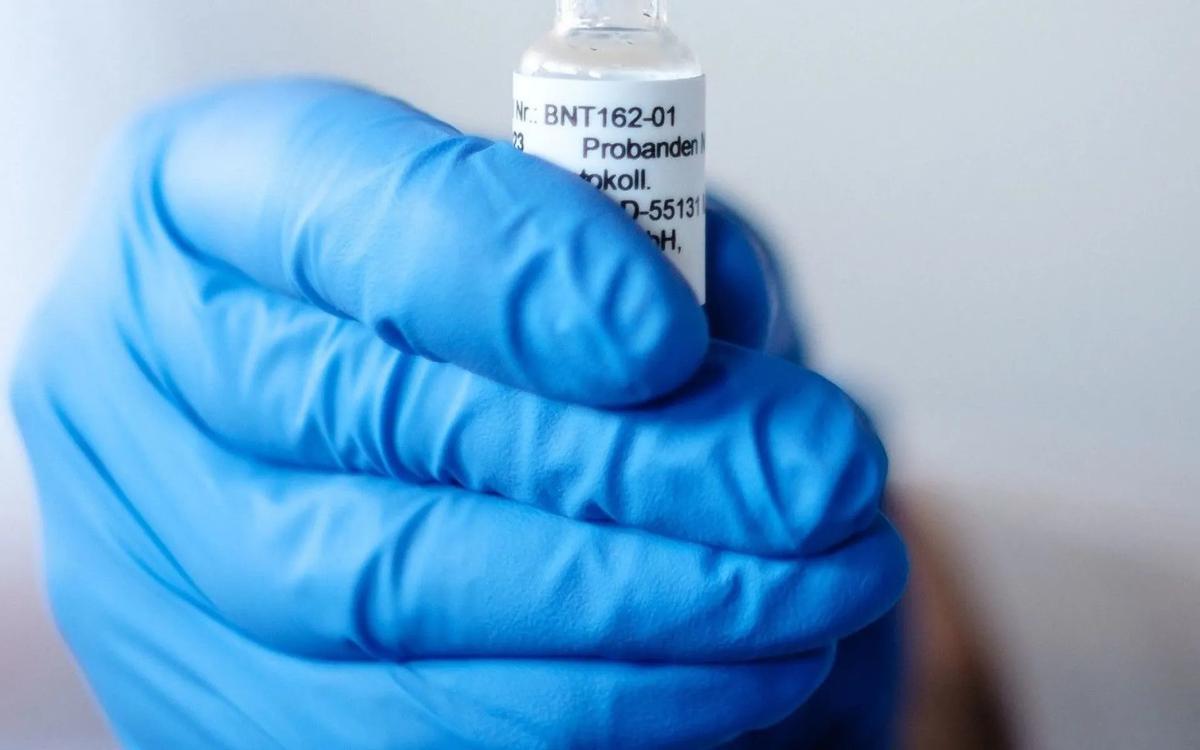This Week’s Highlights
This week we bring you a dispatch from the Russian Arctic, where the Kremlin plans to pillage platinum in violation of rights of indiginous nations; we examine the effectiveness of the Russian Covid-19 vaccine, and the results are unclear, to say the least; plus, Russian authorities accidentally admit that opposition leader Alexei Navalny was poisoned with the nerve agent Novichok.
Want to get the full story? Click the links below for full-length articles in Russian.
Kremlin Pillaging Indigenous Nations, Explained
Developers are planning to mine for platinum deposits in the Arctic on land that is sacred to the local indigenous population, the Kola Sámi. But the United Nations Declaration on the Rights of Indigenous People, which Russia has ratified, states that development on indigenous lands requires the local populations' consent. A lot of money is at stake, but so are the lives and traditions of the roughly 2,000 indigenous people in the area.
KREMLIN EYES PLATINUM BURIED IN SACRED INDIGENOUS LANDS.This June, the Russian government ordered the state mining agencies to hurry up and provide a license to mine the Fedorov Tundra. The area is 80 kilometers (almost 50 miles) from the town of Apatity, in Russia's far northern region of Murmansk, and has one of the largest platinum deposits globally. The Russian economy is almost entirely dependent on the export of natural resources, hence the rush to develop new money-making mining sites amid a worsening economic crisis. But the future mining area is also a sacred space where the indigenous Kola Sámi population worships.
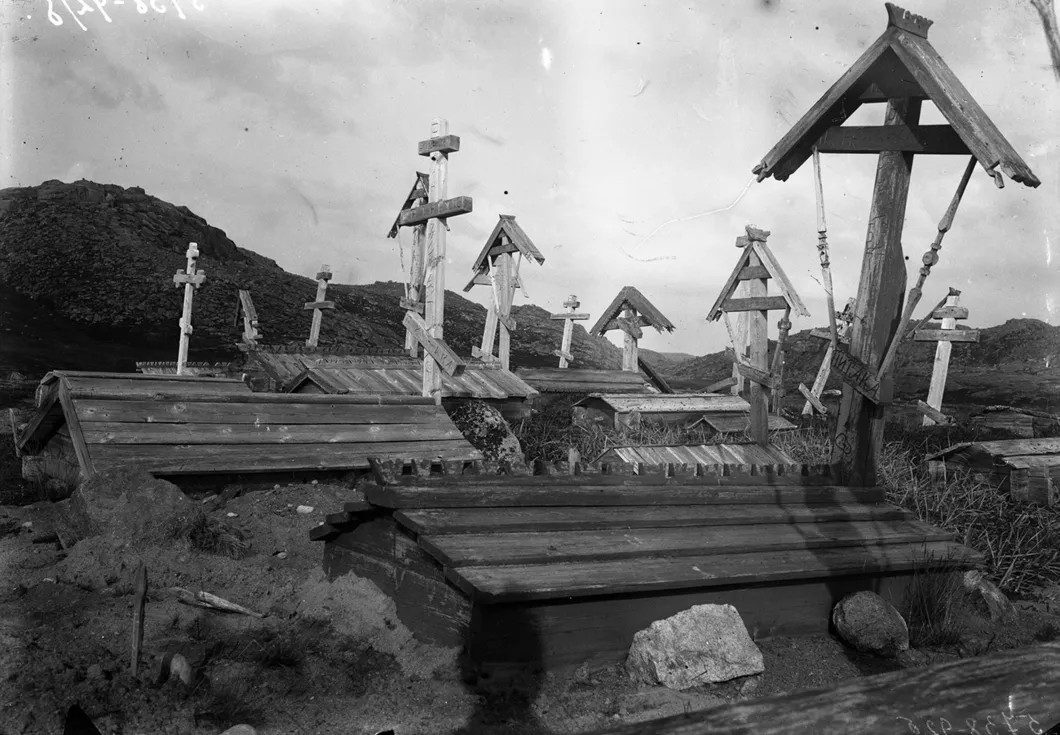
MOSCOW IS DETERMINED TO GET THAT PLATINUM, EVEN IF IT MEANS VIOLATING INTERNATIONAL LAW.Russia is a signatory to the United Nations Declaration on the Rights of Indigenous People, which means the Kremlin has to honor international protections for indigenous nations' rights. Specifically, Moscow cannot start mining without negotiations with the local Sámi nation. But so far, no one has come to consult with the Sámi, who have lived in the region for hundreds of years and are responsible for taking care of their ancestral land. The local governor, however, has already announced that development will begin by 2027.
"FOR THE SAKE OF INDUSTRY, INDIGENOUS PEOPLES ARE BEING DEPRIVED OF THEIR LANDSand their traditions. They are dying off. And all of this is being done without observing international norms and laws. I hope that the companies will start conscientiously consulting before developing the land," Sámi activist Andrei Danilov said to Novaya Gazeta. He is one of the folks leading an indigenous pushback against the mining project. We already profiled him last year when the government accused Danilov of 'separatism and terrorism' for defending his ancestral land rights.
THE PILLAGE OF INDIGENOUS LANDS FINANCED BY OFFSHORE 'INVESTORS.' The mines will be developed by an industrial consortium called Rostec and a private investor named Fedorovo Resources. The region's governor has promised that the consortium will invest 60 billion rubles (roughly $775 million) in the development project. According to documents viewed by Novaya Gazeta, a network of offshore companies in Cyprus owns Fedorovo Resources, and the company has only one employee, a general director.
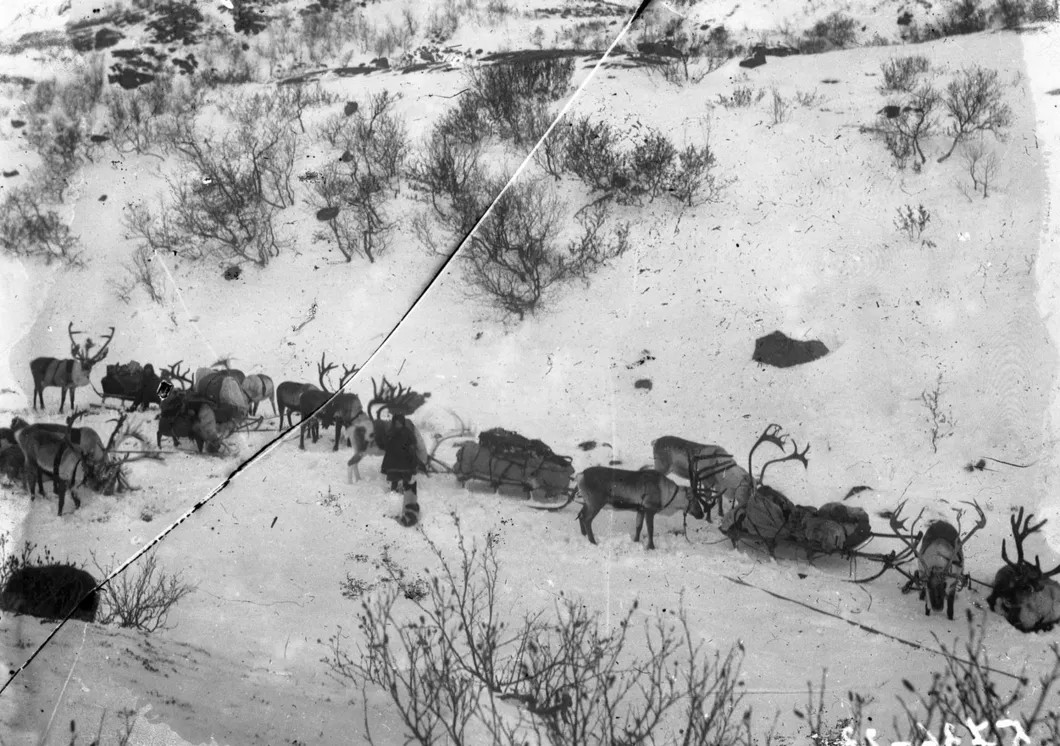
THE ENTIRE ARCTIC ECOSYSTEM IS UNDER ATTACK. The entire Russian Arctic is experiencing an ecological decline as natural resources are over-exploited and industry causes natural disasters. But economics often trumps other concerns. For several years now, the government has made development in the Arctic a strategic priority for Russia, explains our correspondent Tatyana Britskaya. The government has touted new projects to industrialize the Arctic region as vital for the country's future.
BACKSTORY.With rapid climate change warming the Arctic region, Russia’s government is rushing to solidify its control over new trading routes and natural resources in the North. Between 2015 and 2017, nearly 75 percent of Russia’s $1.9 billion military budget went to Arctic expansion. All of this development took place to the detriment of local indigenous communities, which have long had a contentious relationship with the Russia state. For centuries, Moscowhas been erasing indigenous culture and denied these populations their rights. There has also been a recent spike in tensions between federal authorities and indigenous communities.
Read our full report on the history of development in the Arctic and the effect on the indigenous Sami population here.
Russia’s Coronavirus Vaccine, Examined
The news about the first two Covid-19 vaccines edging closer to mass deployment has brought more attention to the Russian vaccine, too. The Sputnik V vaccine has already hit the market even though little is known about it, and the third critical phase of clinical trials is still taking place. This week we examine the facts behind Sputnik V and growing concerns that the effectiveness of the vaccine is still unclear.
WAITING FOR DATA ON SIDE EFFECTS.Novaya Gazeta interviewed several medical experts about the pending coronavirus vaccines, both in Russia and in the West. They expressed cautious optimism. So far, we have few insights into the potential long-term side effects of any of these vaccines, they say. "The success of the Pfizer and BioNTech vaccines gives us more reason to hope for the success of the Russian vaccine," said professor Vasily Vlasov, a doctor of medical sciences.
RUSSIAN VACCINE TRIALS ARE SMALLER IN SIZE AND STILL UNFINISHED.The Russian government has recently released preliminary results of the third phase of clinical trials for the Sputnik V vaccine. They suggest it is 92 percent effective. The data is not available for foreign scientists to cross-check, and the results are based on trials with around 16,000 participants. That is much less than during Pfizer's and Moderna's trials (the first two Covid-19 vaccines clearing the final testing hurdle). The Russian government promises to publish final trial results at the end of November. Still, it has already started vaccinating selected groups of people across the country.
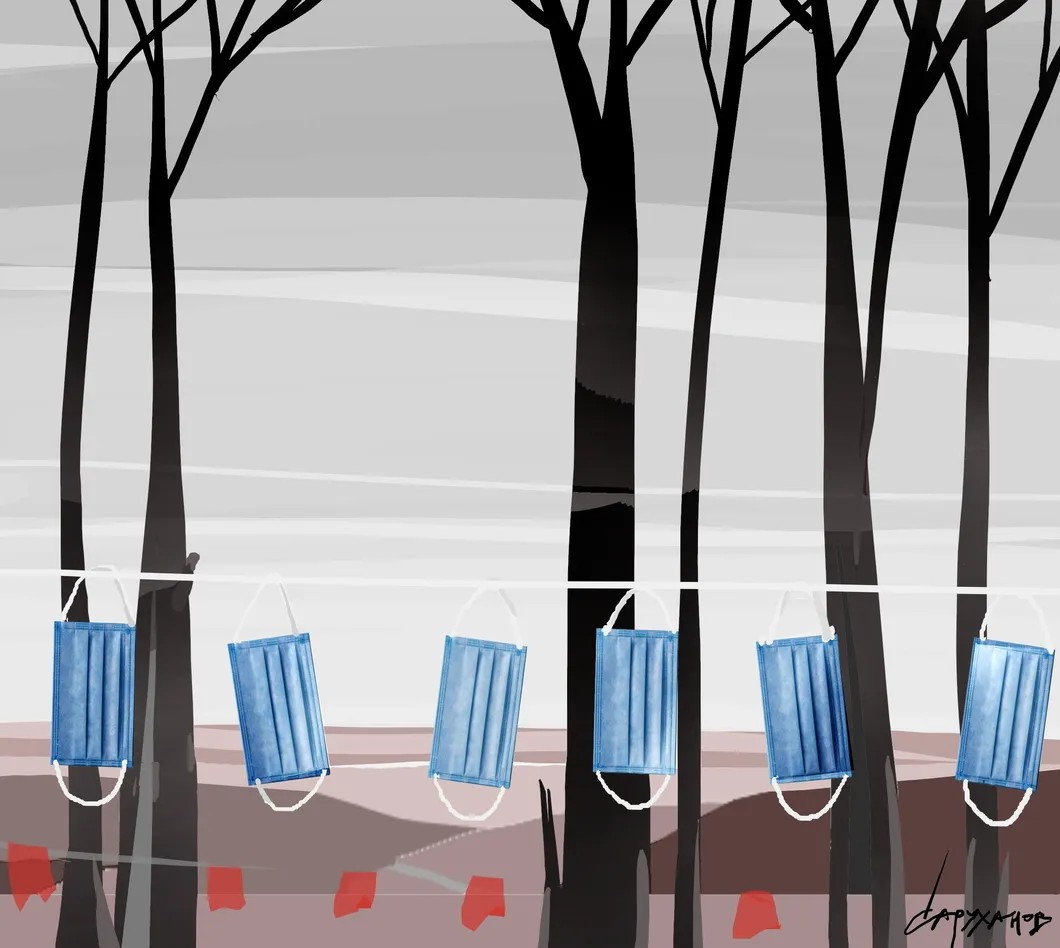
Поддержите
нашу работу!
Нажимая кнопку «Стать соучастником»,
я принимаю условия и подтверждаю свое гражданство РФ
Если у вас есть вопросы, пишите [email protected] или звоните:
+7 (929) 612-03-68
REPORTS OF POST-VACCINATION INFECTIONS.Local news outlets have discovered a cluster of at least three doctors in Siberia's Altai Republic who contracted the coronavirus after getting vaccinated with Sputnik V. They were among the first people who got the vaccine outside of the trials. This is also not an isolated incident — the deputy head of the ruling faction in the Russian parliament also tested positive after receiving the vaccination.
THE COUNTRY'S HEALTH MINISTRY PUTS THE BLAME ON THE VACCINATED. and suggests they weren't careful enough. The vaccine is supposed to generate antibodies after two shots three weeks apart. So, according to the Russian government, it will take at least six weeks to develop immunity with Sputnik V. What happens if you got infected in between is unclear.
GEOPOLITICS DURING A PANDEMIC.The Kremlin has already used the Sputnik V vaccine as a tool to reach its geopolitical aims, promising to fast-track access for autocratic friends in countries like Hungary and Belarus. Officials in Hungary recently announced that their country would be the first in the European Union to try the Russian vaccine. In both Moldova and Ukraine, pro-Russian political actors used these promises to gain political capital in recent elections.
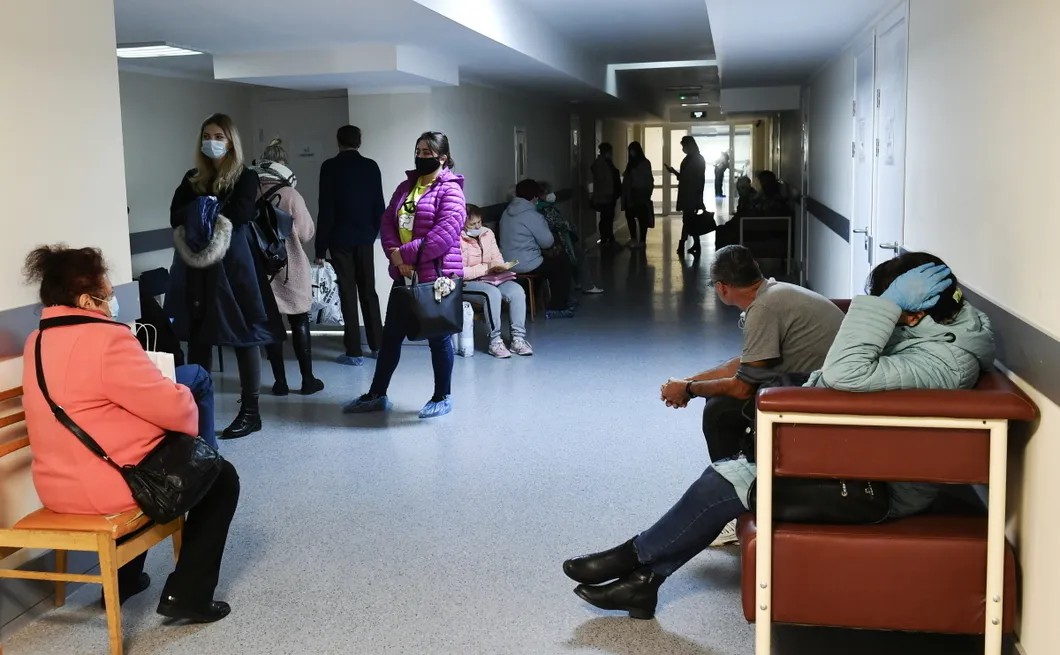
MEANWHILE, RUSSIA’S HEALTHCARE SYSTEM IS OVERRUN BY THE PANDEMIC.The Russian government is hiding the real Covid-19 statistics, and doctors are now legally barred from speaking out. We have to rely on independent journalism to document the real toll the pandemic is taking on Russia. This week we published a big investigative collaboration between Russian independent news outlets from all over the country. It reveals that most of the hospitals treating Covid-19 patients are full and experiencing a shortage of beds. More and more people are being told to stay home. There's a nationwide shortage of drugs to help treat the effects of the coronavirus. In some regions, people have to wait for days to get access to an ambulance, and in some medical facilities, patients are expected to purchase oxygen at their own expense. There is also a high death rate among doctors and a general shortage of personnel in hospitals. Doctors are sacrificing everything to save people.
Read our interviews with medical experts here and watch more interviews here; read our report on the phase three trials for Russia’s coronavirus vaccine here; read our full report on the Russian cities being crushed by the coronavirus here.
The Kremlin Admits the Navalny Poisoning
Russia’s denials about the poisoning of opposition leader Alexei Navalny have reached a new level of absurdity. Russian Foreign Minister Sergei Lavrov recently announced that Navalny was not in fact poisoned in Russia, but rather that he ingested the military-grade nerve agent either in Germany or when he was on his way there.
BUT BEHIND THIS BIZARRE CONSPIRACY IS AN IMPORTANT ADMISSION:for the first time ever, the Russian authorities no longer doubt that Navalny was poisoned. Moreover, the Kremlin has finally acknowledged that he was poisoned with a prohibited chemical weapon. This is at odds with statements from the country’s Investigative Committee, which still claims that it does not have sufficient evidence to initiate a criminal investigation into Navalny’s poisoning.
‘The problem is that in the absence of an official investigation and a public trial, no one will believe Russia’s version of events,’ writes our political editor Kiril Martynov.
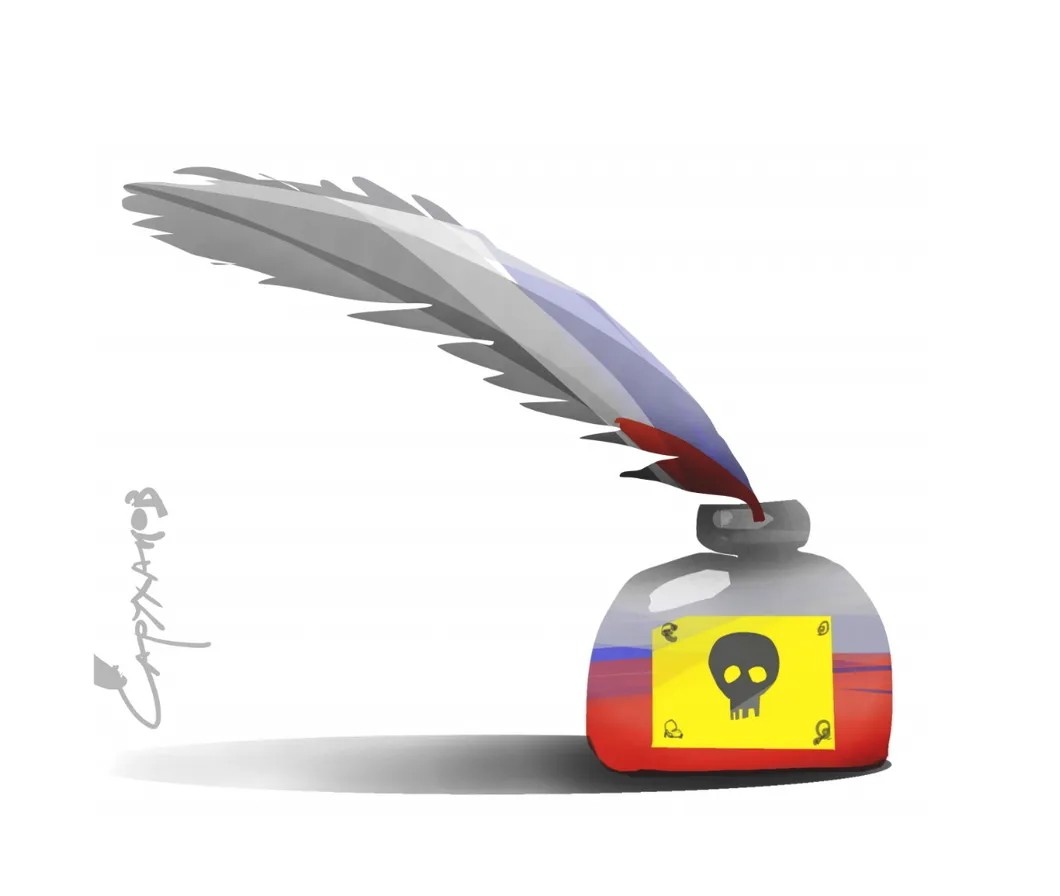
RECIPROCAL SANCTIONS.Following these bizarre accusations, the Kremlin is now forced to impose reciprocal sanctions against German and French officials. European officials will be devastated to learn that they can long longer keep money in Sberbank or buy a chateau in Gelendzhik. The European Union previously sanctioned 6 Russian individuals and one entity in response to Navalny’s poisoning and the use of prohibited chemical weapons.
BACKSTORY.Navalny lost consciousness while flying to Moscow from the city of Tomsk back in August. The flight urgently landed in the city of Omsk, where Navalny spent several days in a coma in a local hospital. Doctors eventually allowed him to be evacuated to Germany, where medical experts determined that he had been poisoned with a nerve agent from the same family as Novichok. The Russian authorities have not taken responsibility for the poisoning, and no criminal case has been initiated. Navalny’s poisoning is part of a pattern, however. Numerous Kremlin critics and Russian dissidents have fallen ill or been killed by poison.
Read our political editor’s column analyzing Sergei Lavrov’s recent comments here.
Other Top-Stories Russia Has Been Reading
- WE EXAMINE RUSSIA’S ROLE IN NAGORNO KARABAKH.One of our most read stories this week was Pavel Felgenhauer's analysis of the situation in Nagorno-Karabakh, as 2,000 of Russian peacekeepers rolled into the disputed territory. The cessation of hostilities was widely viewed as a surrender by Armenia and the Armenian-afiliated statelet following attacks by Azerbaijan. Russians are now bringing over 90 armored vehicles and 380 military vehicles. Their mission is to patrol and observe, not to fight. The Russian peacekeepers will be headquartered in Stepanakert, the center of what is left of the Armenian statelet Nagorno-Karabakh (or Artsakh, as locals call it). In many ways, Stepanakert will be similar to Mitrovica in northern Kosovo, which is a Serbian enclave in the middle of an entirely Albanian region, Felgenhauer writes. Russian peacekeepers will remain in Karabakh for at least five years, with the possibility of extending their presence by another five years. Turkey gave Moscow the opportunity to play the role of peacemaker, giving Putin a chance to act like a great Russian Tsar and guarantor of security in the South Caucasus. But in reality, a new status quo has been established in the region, where Turkey is becoming a dominant regional player, or at least an equal player to Russia.
Thanks for reading!To keep up with Novaya Gazeta’s reporting throughout the week, you can follow us on Facebook, Twitter, Instagram, and Telegram. Our video content is available on Youtube and don’t forget to visit our website for the latest stories in Russian.
— The Novaya Gazeta Team
Поддержите
нашу работу!
Нажимая кнопку «Стать соучастником»,
я принимаю условия и подтверждаю свое гражданство РФ
Если у вас есть вопросы, пишите [email protected] или звоните:
+7 (929) 612-03-68
